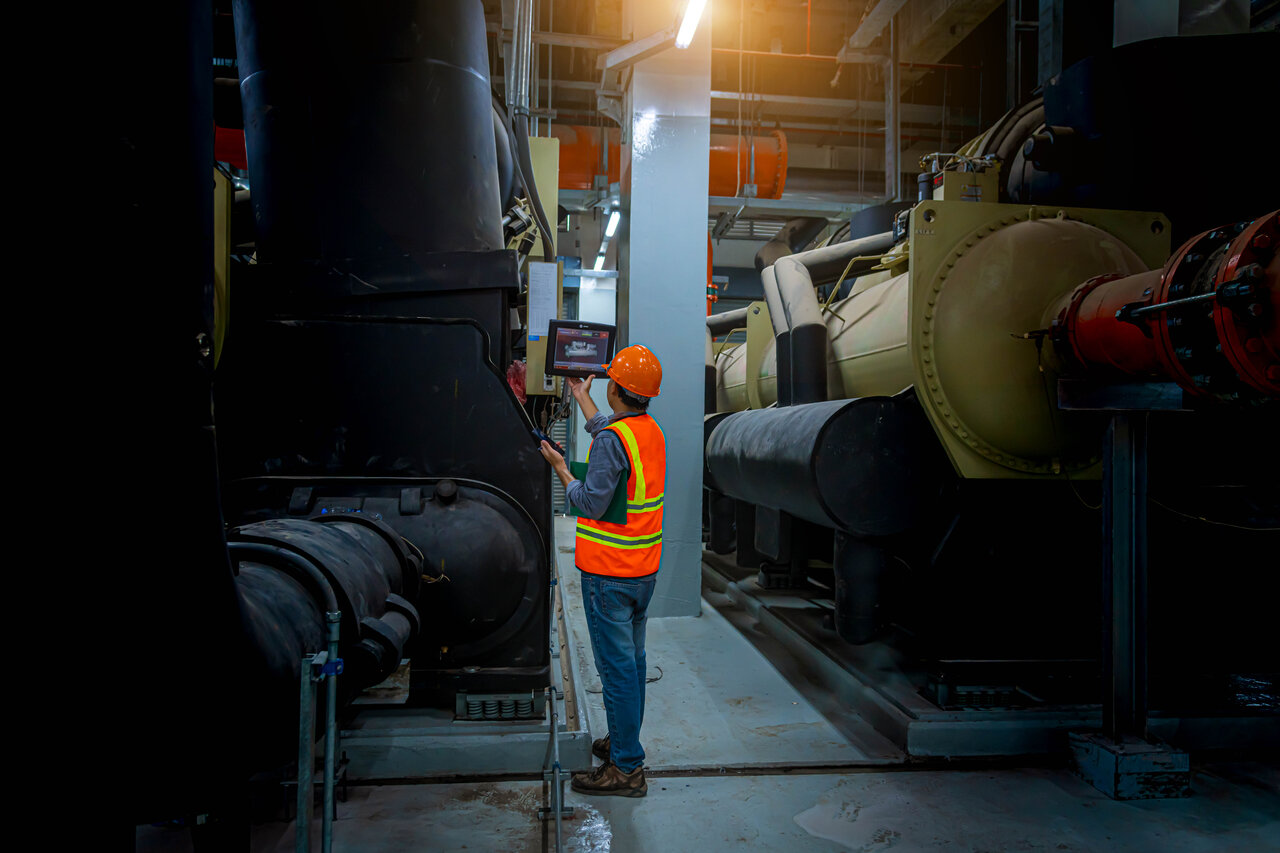Chiller rentals are crucial in numerous industries and commercial spaces, providing temperature control for various applications. They are used for cooling equipment, machinery, and the environment to maintain optimal conditions, ensuring efficiency and productivity.
With an array of chiller types available, choosing the right one can be challenging. This article explores the various chiller rental options available for commercial and industrial purposes, weighing their advantages and disadvantages to assist you in making a well-informed choice.
Air-Cooled Chillers
Air-cooled chillers rely on ambient air for cooling and are commonly used in small to medium-sized applications. They are installed outdoors and have condenser coils that dissipate heat into the atmosphere.
Pros:
- Easy Installation: Air-cooled chillers are easier to install than other types due to their simpler design and lack of additional components like cooling towers.
- Lower Maintenance: They require less maintenance as there is no need for water treatment or regular cleaning of the cooling tower.
- Space-Saving: These chillers take up less space since they don’t require a separate cooling tower or water storage system.
Cons:
- Reduced Efficiency: Air-cooled chillers are less energy-efficient than water-cooled chillers, especially in high ambient temperatures.
- Noise: They can generate more noise due to the use of fans for heat dissipation, which might be a concern in some applications.
Water-Cooled Chillers
Water-cooled chillers use water to absorb heat from the refrigerant and transfer it to a cooling tower. They are typically used in larger applications where higher cooling capacities and efficiency are required.
Pros:
- Higher Efficiency: Water-cooled chillers are more energy-efficient than air-cooled chillers due to their superior heat transfer capabilities.
- Longer Lifespan: These chillers usually have a longer lifespan because the components are not exposed to the outdoor environment and are less prone to wear and tear.
- Reduced Noise: Water-cooled chillers are quieter than air-cooled chillers, making them suitable for noise-sensitive environments.
Cons:
- Higher Installation Costs: Water-cooled chillers require additional components like cooling towers and water storage systems, increasing the overall installation costs.
- Increased Maintenance: These chillers demand regular maintenance, including water treatment, cleaning, and inspection of the cooling tower.
- Space Requirements: Water-cooled chillers need more space to accommodate the cooling tower and water storage system.
Absorption Chillers
Absorption chillers use heat as their primary energy source instead of electricity, making them an environmentally-friendly option. They are suitable for applications where waste heat or excess steam is available, such as manufacturing processes, power plants, and district cooling.
Pros:
- Energy-Efficient: Absorption chillers have a low electricity consumption, making them cost-effective in the long run.
- Reduced Carbon Footprint: They utilise waste heat and reduce the dependence on electricity, contributing to a lower carbon footprint.
- Versatility: Absorption chillers can operate using various heat sources, including natural gas, steam, and hot water.
Cons:
- High Initial Cost: These chillers have a higher upfront cost due to their complex design and components.
- Lower Cooling Capacity: Absorption chillers generally have a lower cooling capacity than other types, making them less suitable for large-scale applications.
- Maintenance: They require regular maintenance to ensure optimal performance and prevent issues like corrosion and fouling.
Centrifugal Chillers
Centrifugal chillers use centrifugal force to compress the refrigerant and generate cooling. They are best for large commercial or industrial applications due to their high cooling capacity and efficiency.
Pros:
- High cooling capacity, making them suitable for large facilities
- Excellent energy efficiency, especially at full load
- Lower noise levels compared to other chiller types
Cons:
- Higher upfront costs compared to other chiller systems
- More complex installations due to their size and weight
- To maintain the best performance, regular upkeep is necessary
Conclusion
Choosing the right industrial chiller hire for your commercial or industrial application is a critical decision that can impact efficiency, productivity, and cost-effectiveness.
Each type of chiller has pros and cons, and it’s essential to consider factors such as cooling capacity, energy efficiency, noise level, installation costs, and maintenance requirements. By understanding the differences, you can make an informed decision that aligns with your specific needs and requirements.
Discover the perfect industrial chiller rental to suit your requirements with the assistance of London Climate Hire. Our collection of commercial chillers has been carefully curated based on our expertise and consists of some of the most efficient equipment in the market, specifically designed and fully packaged to handle the demands of rental. Request a quote today!

